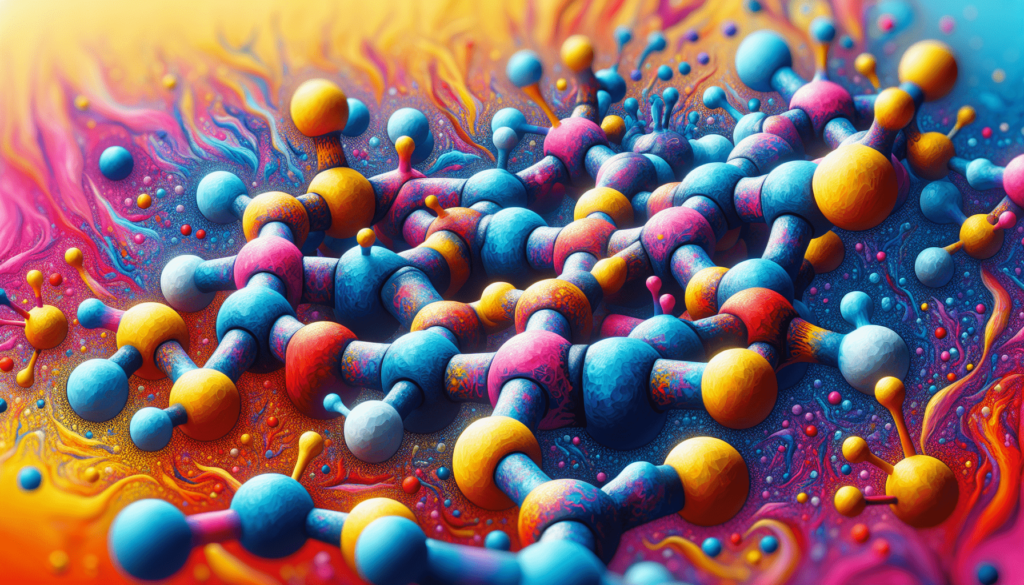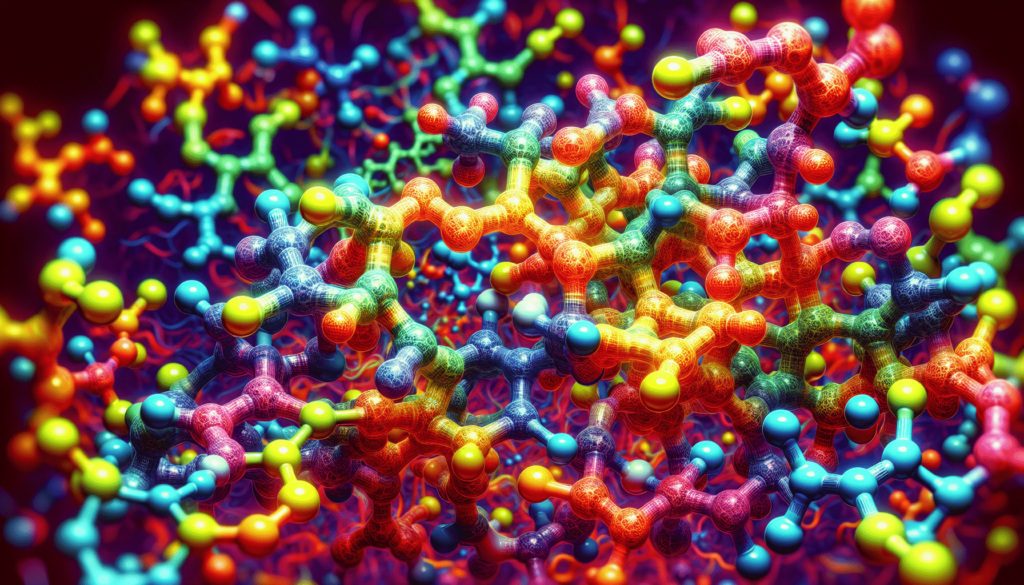Do you ever wonder about the tiny messengers zipping around inside you, controlling everything from your growth and mood to your sleep patterns and appetite? These incredible substances are hormones, indispensable to your daily life and overall wellbeing. With so much going on inside the human body, it’s fascinating to consider how hormones work behind the scenes to maintain balance, enabling your body to respond to varying needs and external stimuli effectively.
Hormones are chemical substances that act as messengers within your body. They are created by various glands in your endocrine system and travel through your bloodstream to tissues and organs, orchestrating a vast array of functions such as emotion regulation, growth, metabolism, and more. While you might not think about them every day, their role is undeniably crucial, subtly influencing nearly every aspect of your life.
What are Hormones?
Hormones are essentially the body’s chemical communicators. Imagine them as the orchestrators of a symphony, ensuring all the instruments (or bodily functions) are in harmony. Produced by your glands, they influence your body’s processes over time, like growth and development, metabolism, and reproduction.
The Key Players: Types of Hormones
Table of Contents
To understand hormones better, let’s break down some of the primary types and their distinct roles:
Insulin
Secreted by the pancreas, insulin helps regulate your blood sugar levels by facilitating cellular glucose uptake. Without this hormone, your cells wouldn’t receive the energy they need, making insulin crucial for metabolism.Cortisol
Known as the stress hormone, cortisol is produced by the adrenal glands. It regulates a wide range of processes throughout your body, including metabolism and the immune response. Moreover, it plays a vital role in helping you respond to stress.Estrogen and Testosterone
These are perhaps the most recognised hormones, playing significant roles in sexual and reproductive development. Though commonly associated with females and males respectively, both are present in every person, maintaining various health aspects.Thyroxine
Released by the thyroid gland, thyroxine is critical for the regulation of your metabolism. It controls the rate at which your body uses energy, ensuring everything runs smoothly.Adrenaline
Another product of the adrenal glands, adrenaline (or epinephrine) prepares your body for a quick response in stressful or threatening situations, priming you for fight or flight.
Understanding these hormones and their functions can illuminate how your body maintains internal balance, or homeostasis, despite external changes.
The Endocrine System: Your Body’s Communication Network
Visualise your endocrine system as a sophisticated communication network, with glands and hormones as its components. This system is dedicated solely to tweaking and calibrating bodily functions to meet internal and external demands. Every gland has a unique role in producing and releasing hormones tailored to specific needs.
Major Glands of the Endocrine System
Let’s discuss the major endocrine glands and their respective functions:
Pituitary Gland
Often dubbed the “master gland,” the pituitary gland oversees other glands. It controls growth and development as well as metabolism through the hormones it secretes.Thyroid Gland
Regulating important bodily functions, the thyroid gland influences metabolism, energy levels, and your mood through the hormones it releases.Pancreas
This organ is crucial for digestion and regulation of blood sugar levels, primarily through the insulin it produces.Adrenal Glands
These glands sit atop your kidneys, regulating metabolism, immune response, and stress adaptation by releasing hormones like cortisol and adrenaline.Gonads (Ovaries and Testes)
Responsible for producing hormones associated with sexual development and reproduction, the ovaries and testes produce estrogen, progesterone, and testosterone.
Such a complex, finely-tuned system maintains your body’s equilibrium, demonstrating how essential hormones are to your health and wellbeing.

Functions of Hormones: The Body’s Taskmasters
Hormones perform a range of succinct roles that extend beyond basic bodily tasks. The importance of these chemical messengers cannot be overstated in understanding the sophisticated nature of human physiology.
Metabolism and Energy Regulation
Hormones like insulin and thyroxine are key figures in metabolism. They help control how your body converts food into energy. A stable metabolic rate ensures you have enough energy to perform daily activities and maintain bodily functions at rest.
Growth and Development
From birth through adolescence and into adulthood, hormones ensure appropriate growth and development. Human Growth Hormone (HGH) is a major player here, promoting muscle and bone growth, while sex hormones influence puberty and reproductive health.
Mood Regulation
Ever noticed how a bad mood can appear out of nowhere? Hormones such as serotonin, dopamine, and cortisol play significant roles in your emotional state. An imbalance can contribute to anxiety, depression, and mood swings.
Sleep Patterns
The hormone melatonin, released by the pineal gland, regulates your sleep-wake cycle, ensuring you get enough restorative sleep, which is crucial for your overall health. Good sleep keeps your mood in balance and your cognitive functions sharp.
Stress Response
Hormones manage how your body reacts to stressors, whether they be physical, emotional, or environmental. Cortisol and adrenaline are front liners, helping maintain alertness and readiness in challenging situations.
Hormones and Health: The Impact on Wellbeing
By modulating various bodily functions, hormones influence many aspects of your overall health. Imbalances can lead to significant issues affecting quality of life.
Common Hormonal Disorders
Issues with hormone production can lead to several disorders, such as:
Diabetes Mellitus
A chronic condition often resulting from inadequate insulin production or use, leading to elevated blood sugar levels.Hypothyroidism and Hyperthyroidism
Conditions stemming from underproduction or overproduction of thyroid hormones, respectively, affecting metabolism and energy levels.Polycystic Ovary Syndrome (PCOS)
A condition where excessive production of androgens disrupts ovulation.Cushing’s Syndrome
Often resulting from excessive cortisol production or steroid medication, leading to weight gain, tissue changes, and hypertension.
Hormones and Mental Health
The interplay between hormones and mental health is significant. Hormonal fluctuations can profoundly affect mood, so it’s no surprise that conditions like depression and anxiety can relate to hormonal imbalances.
Maintaining Hormonal Balance
Achieving balance involves a healthy lifestyle and, where necessary, medication. Here are practical tips to support hormonal harmony:
- Diet: Consuming a nutrient-rich diet, focusing on whole foods, healthy fats, and fibre can support hormonal activity.
- Exercise: Regular physical activity enhances circulation and helps regulate hormonal secretions.
- Sleep: Ensuring high-quality sleep helps regulate key hormone production.
- Stress Management: Techniques like mindfulness, yoga, or meditation can reduce cortisol levels and support overall wellbeing.

Benefits of Balanced Hormones: The Key to a Healthy Life
Beyond their basic functions, balanced hormones contribute to improved health outcomes ranging from glowing skin to a calmer mind and better overall physical performance.
Enhanced Physical Performance
A balanced endocrine system optimises metabolism, energy use, and tissue repair, crucial for efficient body function and recovery, enabling peak physical performance.
Healthy Weight Management
With hormones like thyroxine influencing metabolism and insulin managing sugar levels, maintaining hormone balance can support weight management.
Boosted Immune System
Hormones regulate immune cell production and activity. A balanced system fortifies the body’s defenses against infections and diseases.
Clearer Skin
Hormones affect your skin’s health as well, with conditions like acne often reflecting upheavals in hormonal levels.
Improved Mental Health
Finally, balanced hormones mean a stable mood. The correct secretion of serotonin and other mood-related hormones helps maintain mental and emotional health.
Quizzing Your Hormone Knowledge
To grasp hormones entirely, let’s consider a simple quiz (often used in Quizlet-style to reinforce learning). Try answering these questions to test your understanding:
- What is the main function of insulin in your body?
- How do cortisol and adrenaline help you during stressful situations?
- Which gland is often referred to as the “master gland” of the body?
- Can you name a condition resulting from insufficient insulin production?
- What role does melatonin play in the body?
Answers
- Insulin regulates blood sugar levels by facilitating glucose uptake.
- They prepare your body for a fight-or-flight response, maintaining alertness.
- The pituitary gland.
- Diabetes Mellitus.
- Melatonin regulates the sleep-wake cycle.
Conclusion
Though hidden from view, these chemical messengers profoundly impact your life. Understanding hormones and their roles can help you make informed lifestyle choices to maintain balance, enhancing your health and wellbeing. From managing stress and regulating metabolism to fostering growth and ensuring reproductive health, the delicate interplay of hormones indeed underscores the essence of the human body’s complexity. As you delved into the world of hormones, perhaps you gained a new appreciation for these tireless workers that keep the symphony of your life in beautiful harmony.





